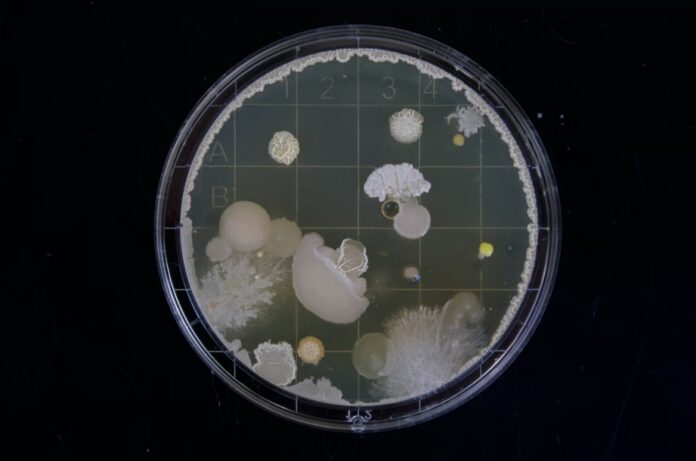Yes, mold is unsightly, but this isn’t the worst thing about it. Your biggest concern should be that it could trigger several health issues. If there is dampness and mold in your house, you could get sick. And you may not even know that the fungus is the one triggering your symptoms.
Staying in a house with dampness and mold can be extremely unpleasant and uncomfortable. The risks associated with them can transform your home into a hazardous environment. They’re not easy to detect and can be challenging to treat if you don’t benefit from professional assistance. Prolonged mold exposure can trigger respiratory conditions and chronic health issues.
This article explores the several health risks associated with dampness and mold in your home.
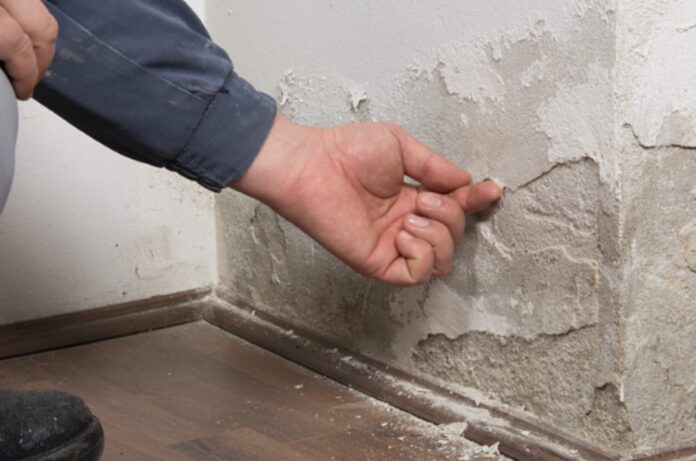
What is damp?
An excess of moisture in your house can cause dampness. Excess moisture usually enters your house from outside or results from condensation formed inside the building. A poorly heated building, excess moisture, or poor ventilation can trigger dampness. Humid or damp environments provide the perfect conditions for mold to grow and thrive.
What is mold?
Mold is a type of fungus that grows in humid or damp places. Depending on the type of mold that grows in your house, it may vary in appearance. Black mold is the most common fungus infesting homes and is responsible for several health issues.
What about mold spores?
Mold spores are small particles the fungus produces in order to grow and reproduce. They’re quite tiny, usually smaller than half the width of human hair, so you won’t notice them even if they float in the air in front of your eyes. Mold spores are allergens and, therefore, can cause allergic reactions. If you touch or inhale them, you can get sick, or your existing health issues could get worse.
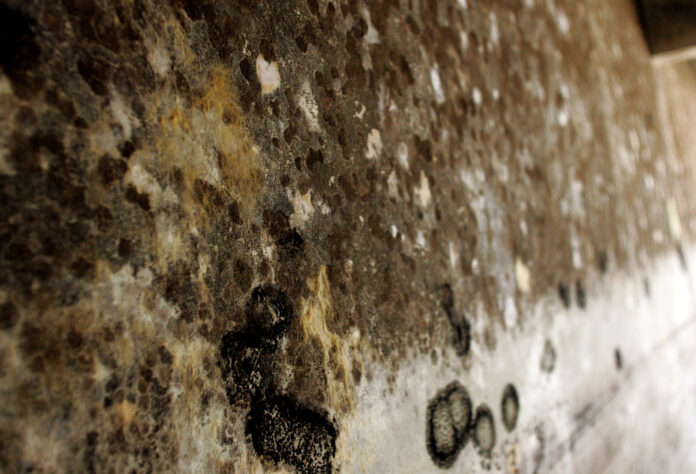
How do mold spores affect your health?
Health specialists state that if you get in contact with mold, you can be more susceptible to a series of health issues. Here is a list of the most common health conditions you could get if you touch or inhale mold spores.
Respiratory problems
People living in buildings infested by mold often complain of respiratory problems.
If you get a respiratory condition due to mold spores, you can experience symptoms like wheezing, trouble breathing, coughing, or a tight chest. Usually, these issues are mild in intensity but can become chronic if you expose yourself to the infested environment for a long period. A general respiratory issue can develop into a severe condition like a common cold. But we need to highlight that you’re susceptible to complex respiratory problems only if you’re exposed to mold for extensive periods.
A respiratory infection resulted from mold exposure includes symptoms such as:
- Sneezing
- Coughing
- A sore or scratchy throat
- Runny nose
- Blocked nose
- Mild fever
- Pressure or pain behind the face
If you’re dealing with the above symptoms for a while now and cannot figure out the triggers, mold could be the cause.

Does mold cause asthma?
Many people are concerned that mold exposure can cause asthma. Healthcare specialists concluded that mold doesn’t trigger asthma, but if you already suffer from the health issue or have an allergy to the fungus, your symptoms could worsen, and you could experience more frequent attacks.
Skin issues
Exposure to mold spores can also cause skin rashes. Skin rashes are a common allergic reaction to mold and can affect you if you’re prone to skin breakouts. For example, if you suffer from eczema, you’re more likely to experience an allergic skin reaction than the average individual.
Usually, people experiencing allergic skin rashes due to mold have the following symptoms:
- Watering, red, or itchy eyes
- Red, itchy, and raised rash
- Cracked, red, and dry skin
If you have any of these symptoms, visit a healthcare professional to evaluate your health and determine if mold or another factor triggers your condition.
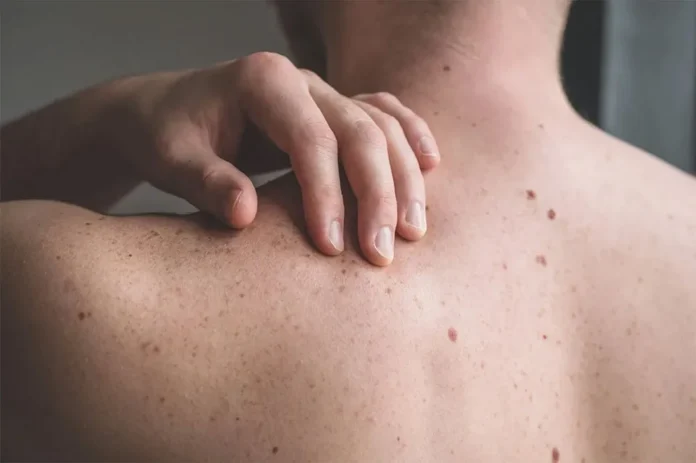
Are you at risk if there is dampness and mold inside your house?
Exposure to mold and dampness is dangerous for everyone, and you should try to avoid it as much as possible. However, if you’re part of specific groups of individuals, you may need to take some extra precautions to ensure you won’t deal with severe health conditions. The NHS states that the following groups of people are more sensitive to mold:
- People with a weakened immune system
- Babies and children
- Pregnant women
- Elderly people
- People with an existing skin condition
- People with respiratory conditions
How can you control mold?
You can employ several strategies to tackle dampness and mold in your house and protect your health. The experts from watermoldfire.net restoration specialize in providing services and advice to counteract the effects of mold in your house. If you identify mold spores in your house, hire a professional mold remediation company to remove them and restore indoor air quality.
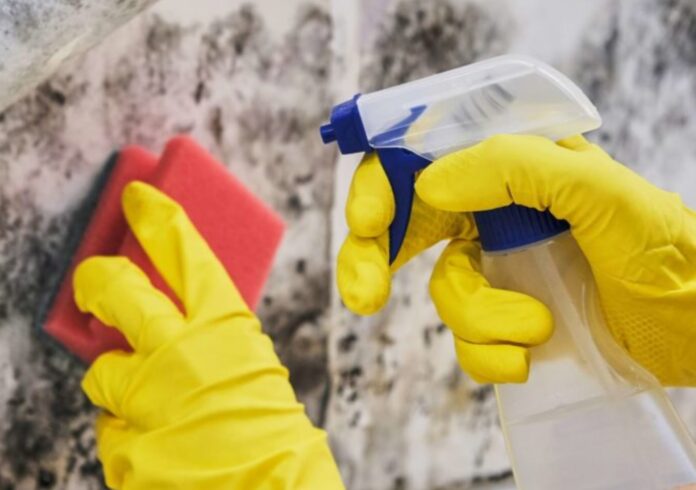
How to prevent mold growth
Dampness and mold in the bedroom
Your bedroom is more prone to mold growth because it’s more likely to suffer condensation build-up because you keep it warmer than the other rooms during the night. Also, your breathing creates extra moisture because you’re spending more time in the bedroom (sleeping). To prevent condensation and dampness, open the windows regularly and leave the door open during the day to promote air circulation.
Dampness and mold in the bathroom
Due to high humidity, your bathroom can develop damp and mold. A poorly ventilated space encourages the humid air to last longer and facilitates mold growth on wet surfaces. Even if you spend less time in the bathroom than in the rest of the house, you still expose yourself to the fungus while using it, and it can prove detrimental to your health. Condensation is the main factor causing dampness and mold in the bathroom, so make sure you control and reduce it.
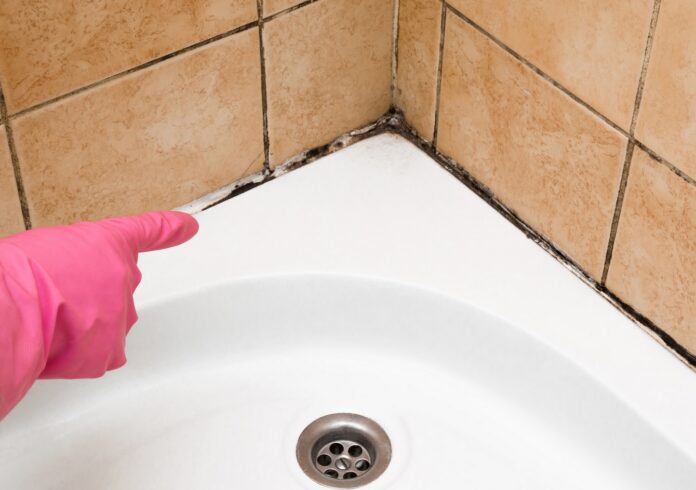
If you notice mold growths inside your house, don’t try to remove them yourself; call the experts to evaluate and clean them.

